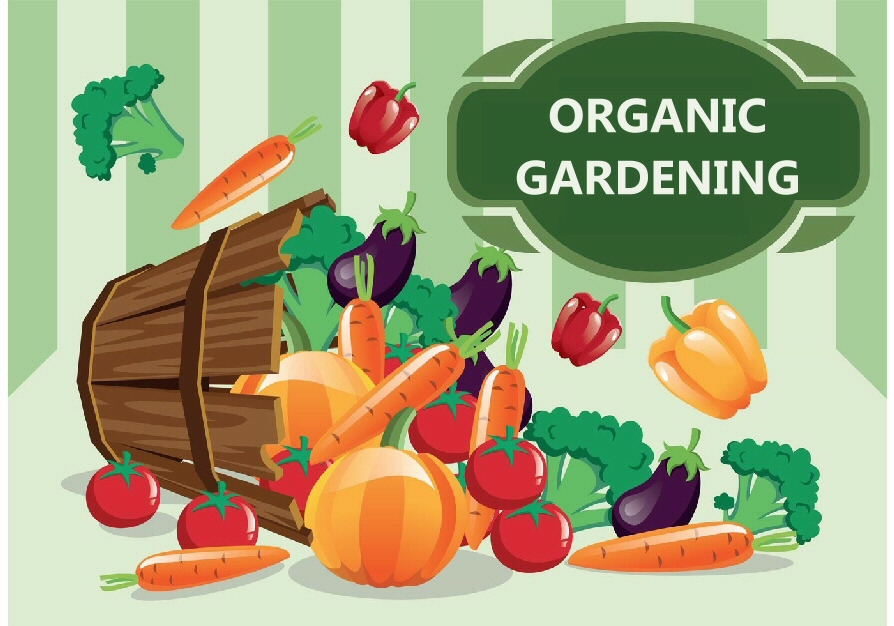Do You Need 10 Easy Tips To Start Organic Gardening?
Do you need 10 easy tips to start organic gardening because you just don’t know how to get started?
But what is organic gardening and why would anyone want to indulge this?
Organic gardening is the way of growing plants, vegetables, fruits and herbs with the use of things only found in nature and to save the environment. Organic gardening does not make use of chemicals that may have an adverse affect on your health. This is especially important when you want to use your home grown vegetables, fruits or herbs in your meal and if you have kids. Chemical companies tell us that the chemicals we use are safe if used according to direction, but research shows that even tiny amounts of poisons absorbed through the skin can cause such things as cancer, especially in children.
Many people worry a lot when it comes to caring for their garden and to start organic gardening. When talking about growing plants, fruits, vegetables or herbs, there is no need to worry about scientific knowledge, environmental science or agricultural technology to get started to go green, while you follow the easy tips that are layed out in the organic gardening tips guide.
There are just a few general and basic things you need to consider:
1. Watering
Overwatering kills most plants. Looks can be deceptive, so to see if your soil is dry enough to water, try the finger test. Insert your index finger up to the first joint into the soil. If the soil is damp, don’t water it.
2. Feeding
Foliage plants usually have high nitrogen needs, while flowering plants, K2O is needed. However, certain plants like cacti and orchids need special care. Feed plants during their most active growth period. The best time to water your plants is in the evening.
3. No Use Of Chemicals.
Organic gardening does not make use of chemicals. Remember, pesticides contain toxins that have only one purpose – to kill living things.
4. Saving Costs.
Furthermore one does not need to buy costly chemical fertilizers and pesticides with organic gardening which saves costs. Many organic recipes for the control of pest and disease come straight from the kitchen cupboard.
Organic Tip: mixing 1 tablespoon of liquid dishwashing soap and 1 cup of cooking oil can make a cheap garden pest spray. Put 3 tablespoons of this mixture in 1 quart of water and spray on plants.
5. Health reasons
Organic gardening does not make use of pesticides that may have an adverse affect on your health.
On the average, a child ingests four to five times more cancer-causing pesticides from foods than an adult. This can lead to various diseases later on in the child’s life. With organic gardening, these incidents are lessened.
6. Less harm to the environment.
Poisons are often washed into our waterways, causing death to the native fish and polluting their habitat. Organic gardening practices help to keep the environment safe for future generations.
7. Composting The Natural Way
One can easily make compost from garden and kitchen waste. Though this is a bit more time-consuming than buying prepared chemical pesticides and fertilizers, it certainly helps to put garbage to good use and to save the environment.
Most garden insects do more good than harm. Butterflies, beetles and bees are known pollinators. They fertilize plants through unintentional transfer of pollen from one plant to another. Naturally, 80% of flowering plants rely on insects for survival. Sowbugs and dung beetles together with fungi, bacteria and other microorganisms are necessary to help in the decomposition of dead plant material, thus enriching the soil and making more nutrients available to growing plants.
8. Lighting
Some plants require no sun or a place in the (semi) shade. Make sure there is variety in the height of each plant for a natural environment. Check the label to see what your plant needs.
Think also of the shape and texture of the leaves. Tall strap-like leaves will give a good vertical background to low-growing, wide-leaved plants. Choose plants with a long flowering season, or have others of a different type ready to replace them as they finish blooming.
9. Temperature and humidity
Plants can survive in cool or warm temperatures, but drastic fluctuations of temperature may not be good for them. Some plants require a humid environment. One tip to maximize humidity is to put the plant inside a larger pot and fill in the gaps with stones or compost to keep in the moisture. Grouping plants together often creates a microclimate that they will benefit from. If you want, you can spray them with water once or twice a day depending on the temperature.
Organic Tip: a simple mulch of pine needles will help to suppress the growth of weeds as well as keeping the moisture in.
10. Re-potting
Some plants require re-potting for optimum growth but there are others that resent having their roots disturbed. You can also experiment with creative containers if you don’t want your plants to dry out. You should either cut them off or re-pot the plant, just release the plant and check its roots. You might have an old porcelain bowl or copper urn you can use, or perhaps you’d rather make something really natural with timber or tiles. If you decide to buy your containers ready-made, terracotta pots look wonderful, but tend to absorb water. Always use a good quality potting mix in your containers. This will ensure the best performance possible from your plants.
You just need to have a little care for your garden and in return, you’ll reap the benefits.
Your garden plants, herbs, fruits and vegetables not only add to the beauty of your outside décor, but it also will give you much pleasure to grow your own and to use fresh vegetables, fruits or herbs in your food to maintain a healthy lifestyle.
With a creative mind and some determination, you will soon have an organic garden that will be the envy of friends and will delight your visitors alike. If you want to have some steps leading up to get real results, get this e-book now: Organic Gardening Tips.






